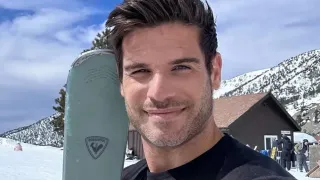August 15, 2023
4 LGBTQ+ Retirement Hurdles (and What to Do About Them)
Kate Ashford READ TIME: 3 MIN.
In many ways, retirement planning for someone in the LGBTQ+ community is the same as anyone else's retirement planning: Save more, spend less, invest for the long term.
But for LGBTQ+ people, there are unique challenges. Historically lower incomes mean they have less to save overall. Because they're less likely to have children and may not have traditional family support structures, people in the LGBTQ+ community must plan more carefully for long-term care. It's also crucial to have thorough estate planning documents, as fewer same-sex couples are married.
Here are a few of the hurdles of LGBTQ+ retirement planning – and how planners recommend jumping them.
1. It's Harder to Save
LGBTQ+ workers earn about 90 cents for every dollar earned by the average worker, according to a 2022 analysis from the Human Rights Campaign Foundation, an educational organization focused on LGBTQ+ civil rights. They're also more likely to report working part time or as a freelancer or contractor.
If you don't have access to an employer-sponsored retirement plan, you can open a solo 401(k), SIMPLE IRA or SEP IRA, all of which may allow you to save more than a traditional IRA. If you do have access to an employer plan and the means to do so, put enough away to get any employer match that's available to you – but don't stop there.
"Saving 3% of income is rarely enough," says Landon Tan, a certified financial planner in Brooklyn, New York, who recommends putting 15% to 25% away for the future and starting as soon as possible. "Saving earlier in life gives your investment the chance to compound," he says. "If you start in your 20s, it can be a very relaxed savings rate that you might even pause during an expensive phase in life."
2. Family Support Structures May be Different
Because fewer LGBTQ+ couples have children, they have fewer potential caregivers as they get older. They may face unfair treatment by family members, Tan says.
LGBTQ+ older adults also fear discrimination in nursing homes and assisted living communities, according to a 2021 study published in the journal Clinical Gerontologist, leaving LGBTQ+ seniors with fewer options in general.
"Many of us would like to age in our own homes and near our chosen family or our community," says Frank Summers, a CFP in Charlotte, North Carolina. "Home-based care is one of the more expensive options. We need a plan for that."
Long-term care insurance can help cover the costs of an in-home caregiver. Consider, too, a hybrid life insurance policy that comes with a long-term care rider. With hybrid policies, you can use part of the death benefit to pay for long-term care if you need it, and if you don't, your beneficiaries get the benefit when you die.
"It's pretty much all I'm selling to clients because it's no longer 'use it or lose it,'" says Catherine Valega, a CFP in Winchester, Massachusetts. "Somebody will get the money back one way or another."
Long-term care coverage can also help cover costs of an LGBTQ-friendly nursing home, which may be located in a bigger city and therefore more expensive.
3. Inheritance Laws Don't Always Work in Their Favor
LGBTQ+ adults are less likely to be married, which means that inheritance laws that favor spouses don't always apply. "Depending on their state, all of their assets might flow to their parents, who they might not have a good relationship with," Tan says.
Creating a comprehensive estate plan can ensure that your assets pass to your desired beneficiary. A basic plan includes a will, financial power of attorney, health care proxy and an advance directive. "I do encourage people to get those things in place," Tan says.
4. It Can Be Hard to Find Trusted Professionals
It's hard enough to find financial or legal professionals in general. Finding one who understands LGBTQ+ clients can be a struggle.
"I've been looking for an attorney that's LGBTQ+ friendly in Connecticut, and it hasn't been that easy to find," Valega says.
Check resources such as the National LGBT Chamber of Commerce or the Financial Planning Association's PlannerSearch, where you can select "Nontraditional Households" as a specialty. Then, do your due diligence.
"Look at their website, social media, then interview them and ask them questions," Summers says. "There's a big difference between someone who is welcoming and somebody who really understands the situations and the needs of the community."
_______________________________
This article was provided to The Associated Press by the personal finance website NerdWallet. The content is for educational and informational purposes and does not constitute investment advice. Kate Ashford is a writer at NerdWallet. Email: [email protected]. Twitter: @kateashford .






